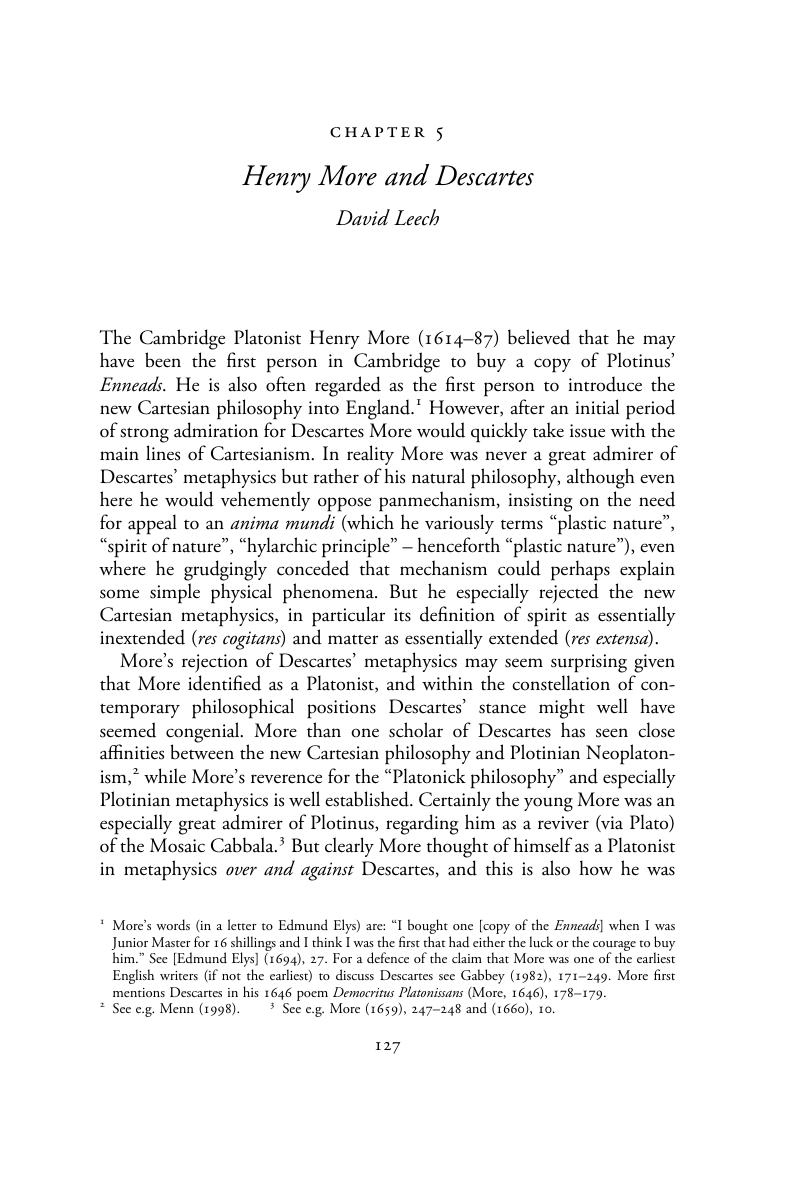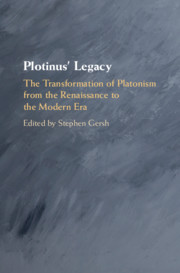Book contents
- Plotinus’ Legacy
- Plotinus’ Legacy
- Copyright page
- Contents
- Contributors
- Introduction
- Part I The Italian Renaissance
- Part II Sixteenth-Century France
- Part III The “Cambridge Platonists”
- Chapter 5 Henry More and Descartes
- Chapter 6 Ralph Cudworth as Interpreter of Plotinus
- Chapter 7 John Smith on the Immortality of the Soul
- Part IV German Romanticism
- Part V The Twentieth and Twenty-First Centuries
- Appendix: Chronology of Editions and Translations of Plotinus1
- Index
- References
Chapter 5 - Henry More and Descartes
from Part III - The “Cambridge Platonists”
Published online by Cambridge University Press: 05 April 2019
- Plotinus’ Legacy
- Plotinus’ Legacy
- Copyright page
- Contents
- Contributors
- Introduction
- Part I The Italian Renaissance
- Part II Sixteenth-Century France
- Part III The “Cambridge Platonists”
- Chapter 5 Henry More and Descartes
- Chapter 6 Ralph Cudworth as Interpreter of Plotinus
- Chapter 7 John Smith on the Immortality of the Soul
- Part IV German Romanticism
- Part V The Twentieth and Twenty-First Centuries
- Appendix: Chronology of Editions and Translations of Plotinus1
- Index
- References
Summary

- Type
- Chapter
- Information
- Plotinus' LegacyThe Transformation of Platonism from the Renaissance to the Modern Era, pp. 127 - 145Publisher: Cambridge University PressPrint publication year: 2019
References
- 3
- Cited by



